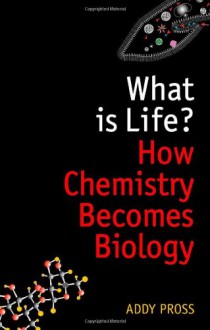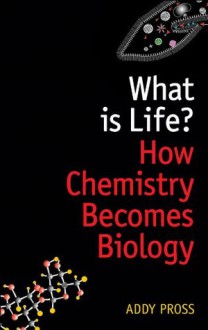
The author offers nothing towards answering the title "What is Life" and offers nothing but the most simplistic presentation for addressing the subtitle "How Chemistry Becomes Biology".
When he does address the title, he forces the presentation into his preferred world view of teleonomy (just a fancy way of saying animate objects are teleological and inanimate objects are not, whatever).
He's going to equate maximum efficiency with DKS (dynamic kinetic systems) and explain that life arises from that process.
I did get irritated at the author. He makes the statement along the lines "to understand the what of life, one first needs to know the how it came about, and then take the particular to the general and then make the universal principals before proceeding". I fault that formulation in order for understanding and explaining of nature. (It's a very Kantian formulation of science, and I saw it just as an excuse for the author to not address the title of the book).
The author really added nothing new whatsoever to my understanding of what is life and where did it come from. There was nothing new or novel in this book. Books like this one are why I slowed down reading science books. They need to teach me something new, something I did not already know, and be so good that I want to re-listen to them again for their novel presentations and the new insights they showed me. This book did none of those things.
I wasted my time with this book. I would recommend Hazen's Great Course Lecture, "Origins of Life", Wagner's "Arrival of the Fittest" which considers the topology of the possible maximum efficiency paths which "What is Life" tries to explain from time to time but not adequately, and I would recommend, Rutherford's "Creations: How Science is Reinventing Life Itself", a book which is not too simple and not too complex but explains the things presented in this book as they should have been (and regretfully which seems to have been completely ignored by the reading (and listening) public).


 Log in with Facebook
Log in with Facebook 









